Singpoli, Citizens, and City Council: A Traction for Transparency on the BKK Landfill
Mayor Pro Tem Tony Wu has referred to the BKK landfill as just a “patch of dirt.” Here’s why it’s so much more and how it could affect your local neighborhoods.
BY VIVIAN GOMEZ
In the latest updates on the decision of converting the former BKK Landfill into a 218-acre hotspot that possesses amenities such as: a 400 room hotel, “glamping” site, 20,000 square foot conference area, employee dormitory, ziplining, solar greenhouses with hydroponic beds, police-K9 training center, firefighter training center, and a virtual reality park, West Covina City Council voted Tuesday, July 21st, to further extend a Purchase and Sales agreement
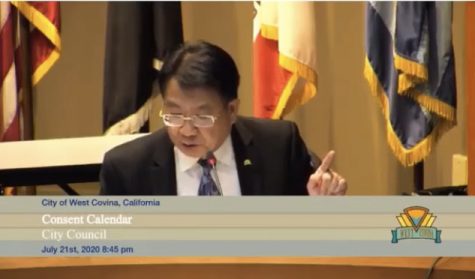
with Singpoli Capital Group until the end of October to legally obligate a transaction to occur in the coming years. The sale, deemed an early step in the process of buying does not mean the land is sold, as it is still subject to completion of a detailed review under the state’s environmental protection act, among many other considerations to the planning of it. Proceeding forth, the Pasadena-based developer must decide to write a check and buy the land, submit an application for the city to modify its general plan, undergo a zoning change, and ultimately would trigger the slow start to meet the standards of all eight regulators involved and those of the California Environmental Quality Act. The land is currently only available to use as an open space or a golf course.
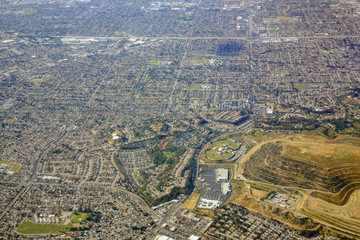
Tuesday’s meeting, only available in-person to the City Council and a few other members of the Board, received over 280 public comments concerning two major topics: BKK landfill and defunding the police. Before the meeting, an email template provided by Change West Covina gave citizens looking to comment on talking points that were critical for the opposition to Singpoli’s plan. While they were looking to get as much attention to the topic by those means, the local student-run group encouraged personalized emails as well. Despite the massive amount of active citizens, the Assistant City Clerk called that over 208 emails were considerably the same. The process in determining this followed that if the writer’s first sentence in their email included BKK, the comment was not read due to the fact it would be classified as impersonal. Consequently, 76 unique emails were not read aloud and deliberate suppression occurred on the grounds of City Hall. Among these emails was Mike Miller, retired Director of Environmental Services for West Covina, who worked extensively for 24 years to demonstrate the dangers of intensive development on the tracts of land.
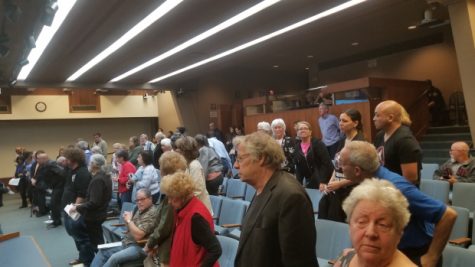
Resident Jerri Potras, called what Mayor Wu was doing, “in education, we refer to it as the ‘main idea’… only the topic is identified. The details don’t matter.”
The procedure for receiving ‘blast’ or templated emails are not uncommon through public agencies, especially when petitions have been involved. The usual way these emails are handled is for the City Clerk to publicly read one into the record with a statement indicating a count of the people who sent in that form of communication. This practice has been followed throughout the duration of City Council meetings until Tuesday.
Otherwise, the meeting encompassed little to no actual discussion between the City Council and residents about the plans with Singpoli. The vote, which took less than 5 minutes, was 4-1, with Councilmember, Lloyd Johnson, being the only opposition to the agreement. He has expressed doubts with Singpoli before and repeatedly votes against intensive development on the land.
HISTORY ABOUT BKK
BKK Landfill opened in 1963, in an attempt to make revenue and began to operate as a landfill and leachate treatment plant. Multiple hazardous gases have been detected by the U.S. Environmental Protection Agency such as: arsenic, high levels of asbestos, gasoline, pesticides, cyanide, mercury, among several more. From 1980-1996, multiple lawsuits were filed against BKK Corp and W&A Builders due to the public health dangers the land imposed. An instance occurred in 1984 as a gas migration containing methane and vinyl chloride resulted in forced evacuations, and ultimately a $43 million lawsuit ensued to 508 residents. Currently, there are three major divisions of the land. Class 1 landfill, considered a critical hazard, stretches across 195 acres and holds 3.9 million tons of liquid waste. To add, all landfills are typically synthetically lined to prevent leaks, but the hazardous site currently is unlined. Class 3 landfill holds 20 million tons of municipal waste across 175 acres of land. While their set boundaries are undetermined, the depth for these landfills reaches up to 595 feet. The final tract of land, 134 acres, is owned by the city’s redevelopment agency, after the City of West Covina purchased golf course or coastal sage scrub assets and the rights to the top deck, which is 84.27 acres.
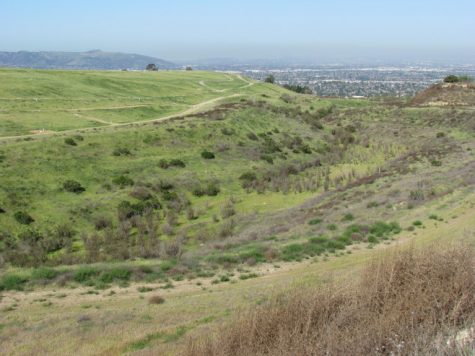
West Covina solidified it’s bond with Singpoli Group in 2016 after the proposal of the grand amusement park. To date, there has been no action taken upon reviews of the land, yet four different proposals have been disclosed to the public. The company can continue to alter or change this plan. After releasing a 90-day Request for Proposals for the sale of the city parcels and license of the top deck, the time was cut as in March 2019, City Manager, David Carmany signed a letter of intent with Singpoli Group to build upon the land without the knowledge of two councilmembers, Lloyd Johnson and Jessica Shewmaker. Singpoli proposed to purchase it for $13.5 million in August 2019, and Mayor Wu has encouraged the developments Singpoli’s brought to the table.
SINGPOLI’s INVOLVEMENT
In recent interviews with Singpoli Group CEO, Kin Hui, his goals include creating organic nurseries, solar energy as a renewable source, and ultimately wanting to create more job opportunities in West Covina. According to Singpoli’s website, the company has built hotels, residential homes, shopping centers, and restaurants. Hui was approached by former City Manager, Chris Freeland and then-councilman Tony Wu due to the notion that Hui says “they were looking to him to change something”. Hui agreed, alongside stating that “200 acres of land is very rare in California, so that is why we were interested.” Purchasing means that Singpoli Group would be solely responsible for ensuring the safety of the land through all eight regulator agencies and for acquiring the necessary reviews required to build upon it.
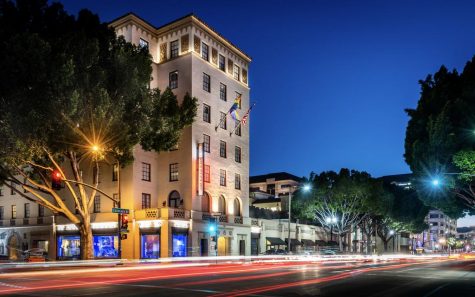
Addressing the concerns of the long duration it has taken to accumulate a plan, Hui acknowledges that “if you do something bad, then people are going to remember it forever” deeming it essential for the extensive time it takes to plan, calling it a possible ten year process. It also becomes apparent that this project “is not meant for our generation, but our kids and future generations.” The group, according to Hui, is still in the planning stages of the project. His first priority lies within preserving the land first with “essential greener nature” also bringing up the questions of what kinds of programs, nature, and green could benefit the people there.
To communicate and answer these questions, Hui says that “it’s a challenge, but we must let the whole world know what we are doing.” Through this, he adds the idea of inviting City Council and residents alike to their hotels to further discuss these ideas. To continue, the successful CEO reinstates that there have been several presentations by his team to the current and former council about their proposals, and the main challenge has been “in their political agendas and ideas”, pointing back to a former city councilman, James Toma, who was a constant opposition to Singpoli’s proposal in his years. Although he received this opposition, he stands with his message that everybody should be considering “what is in the best interest of West Covina.” In response to critical residents of the proposal, he asks that if “people are immediately rejecting ideas, how are we going to make everyone happy.”
Concerning worries or doubts about the future of the project, Hui states that “every project has its challenges” and “if it was easy, everybody would do it.” The major challenges for this Singpoli project seem to be central on the hazards intensive development would cause for the surrounding environment and public health. Henceforth, talking about dangers such as the groundwater contamination, he claims that if the land is contaminated, they will not touch it.
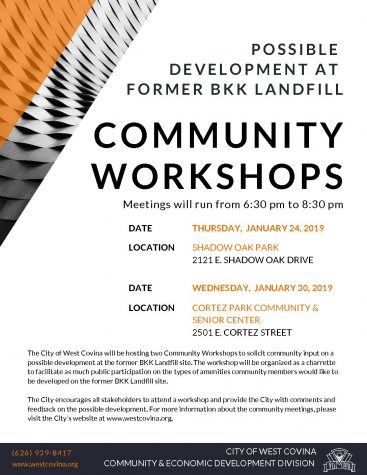
The company has not worked with such environmentally compromised land, according to their property history. He adds that this is “his worry, not their worry.”
“We want people to learn, a lot of people attack it. Everybody has an opinion. If you are a West Covina resident, everybody has the right to understand what is being built” Hui stresses. It is prevalent that the company’s main goal is to build an outreach with the residents, and has repeatedly said that he would be open to attending any future workshops and discussions with the residents about the future of the landfill. Without answering concerns about the site, Hui mentioned plenty of his goals without solid evidence or solutions to the hazardous plot or land.
His theory in developing are what he refers to as “the three C’s: commitment, communication, and compromise”
LIVABLE WEST COVINA
This trust placed in Singpoli has not settled well with residents, as groups such as Livable West Covina have taken active movements themselves to demonstrate data to reason against intensive development on BKK. Community activist and co-founder of Livable West Covina, Brain Jobst, has spoken for years against intensive development on the land. In an interview with Jobst, he was quick to point out that “we are not against Singpoli, but we are against the intensive development they propose to do up there.” Jobst would perform preliminary site assessments, especially with sewer and water plants. Additionally, his job as a management consultant requires analysis of all aspects surrounding the site. The 31-year resident recalls living his first 20 years just two miles from the landfill, saying “I saw when it opened, and all the steps in between to its closure.” Once given the opportunity to leave West Covina, he said the thought of leaving the land to be compromised “wouldn’t let him sleep at night” and from there, his work against the intensive development on BKK began.
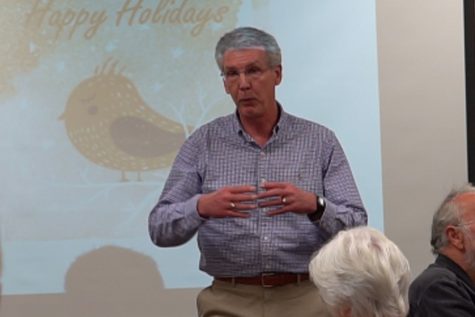
Initially, Jobst recalls possessing a relationship with the former city council, where they were able to discuss data briefings and concerns about the landfill. However, he says that has since changed, in which he claims to not have that equivalent relationship. At some point, Jobst recollects that during a city meeting, when confronted with questions about the lacking depositions about developing on BKK, he was told his question was “premature.” His frustrations reside in the current city council that is “unwilling to listen to the residents” but more importantly, that ample data and evidence about the landfill is being provided by a resident; himself. Since then, he has done over 43 workshops and presentations to address some of the issues with intensive development upon the land. In response to Singpoli Group’s message to want to attend these workshops, he says that “we have reached out about having them sit with us and discuss this proposal. They did not respond.”
Jobst continues to discuss issues that exist as the 400 room hotel is intended to be built. An economic analysis in the West Covina general plan of 2016 states that all the way until 2035, there will be demand for a 137 room hotel. At the local Pacific Palms resort just on the outskirts of West Covina, the 292 room hotel struggles to stay half full over its capacity. In addition, there were also intentions to completely reconstruct the Plaza West Covina, as it planned to include residential, professional, commercial, and hotel aspects. With an overabundance of hotel rooms with nobody to meet the capacity of them, the daily rate West Covina soughts after is not going to be present. Daily rates and hotel occupancy taxes, which inherently go all to the city, only exist if hotel rooms are at capacity. This results in the question of how the hotels are going to stand as economically viable, if the nine present hotels in West Covina struggle as well.
The other controversy Jobst addresses concerns the location of the planned hotel. The hotel would hinder and damage the habitat of over five endangered species, including deer and California gnatcatchers. The complete list of species located at the BKK can be found on the Livable West Covina website.
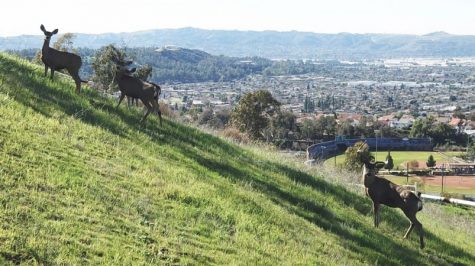
Traffic congestion also poses a major problem. Azusa, the most congested street in West Covina, only has one entrance and exit to the infamous landfill on Giambi Lane. The lack of entry and exit points pose a public safety hazard and to create another entrance and exit would impact cities such as Valinda, Walnut, and La Puente. In addition, the United Walnut Taxpayer Association recognizes that being on just the other side of the landfill would result in traffic and as a result, would want revenue from the hotel as well. Essentially, the city’s attempt to acquire those profits from the hotel would be impeded upon.
Jobst says that as a collective coalition of activists, “they are not only against the intensive development on the land, they also have ideas how to improve it.”
The proposal Livable West Covina has incorporated into their presentations includes the establishment of a wilderness park, non-penetration solar panels, recreational amenities, trails connecting to Walnut and Galster, and what they deem will contrast the Singpoli plan’s adverse consequences.
For more information about Livable West Covina’s proposal for the BKK Landfill, it can be found here.
CHANGE WEST COVINA
Students of Change West Covina, Peter Dien, Yusuf Arifin, Erin Lopez, and Emylou Vergel De Rios, joined in the conversation about the lacking reason to develop intensively at BKK. They believe that the city council is “thinking short-term, not long-term” also adding that it has been a pattern doing so, “evidence being BKK.” Their efforts in speaking at city meetings and gaining public traction for the opposition has proved successful. Their post concerning BKK received over a thousand likes and demonstrates the interaction the public is beginning to have with their local government. Dien states that “this controversy surrounding it already shows that nobody will want to attend it.” Furthermore, the group has their own ideas on gaining revenue some other way as Dien adds that it would be impactful “to reallocate funds from public safety and work on raising a tax.” Working alongside Jobst closely, the organization plans to further increase the awareness of the unethicality and repercussions about the proposal that would affect West Covina permanently.
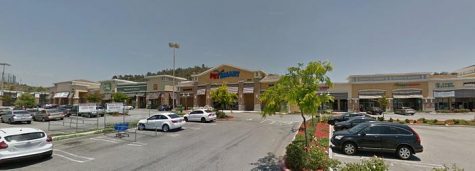
Conclusively, it is prevalent that West Covina residents are no longer waiting to be in the dark about the transactions that occur and the dangers that this development would enable. Without a City Council to produce data needed for the residents to make rounded decisions in supporting the intensive development site, activists like Jobst and Change West Covina prove that it is in a citizen’s rights to be aware of these actions. In the months leading up until October, it is vital to be able to gather and receive proper evidence for residents to decide about the decisions that could be just right in your neighborhood.

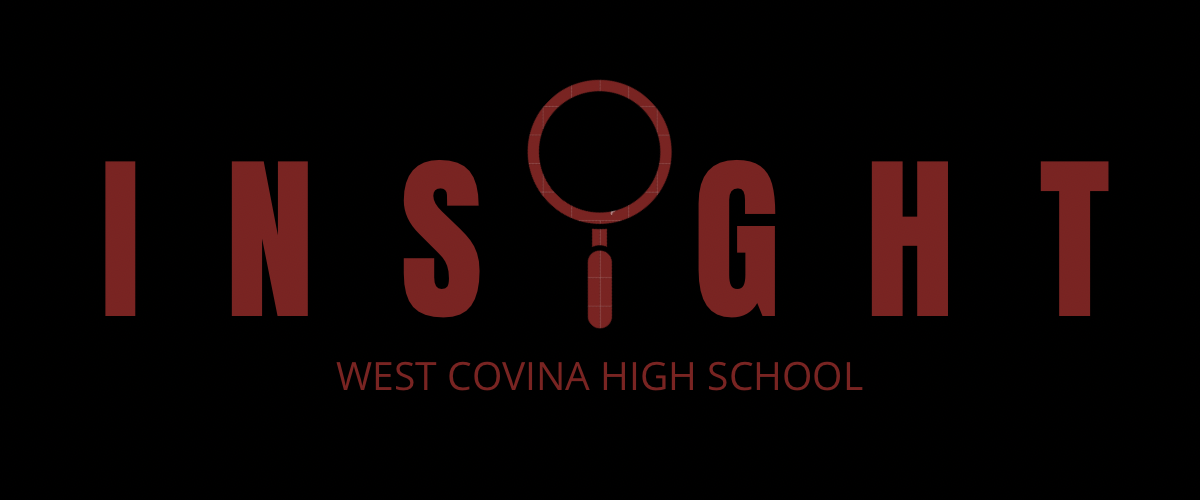
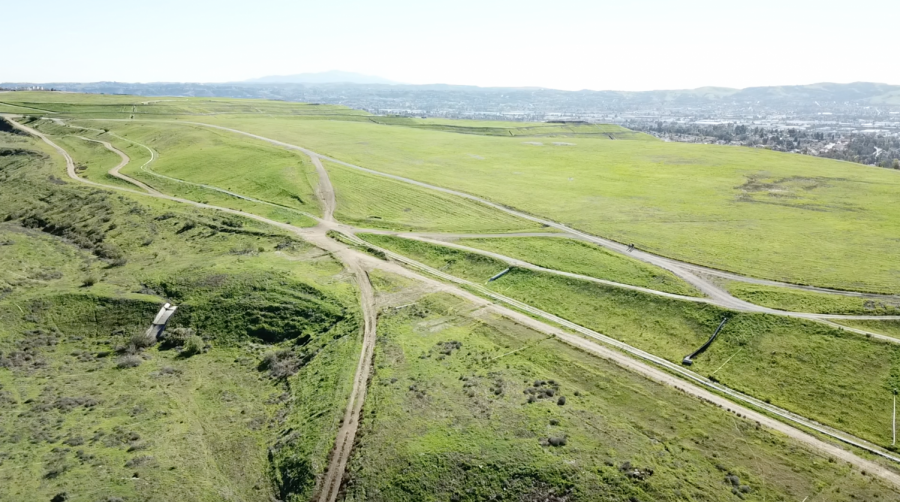


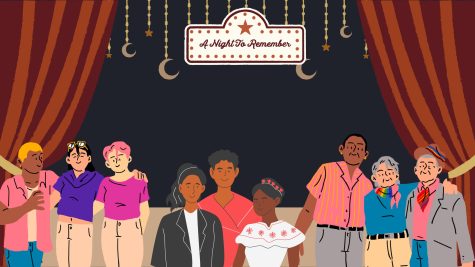
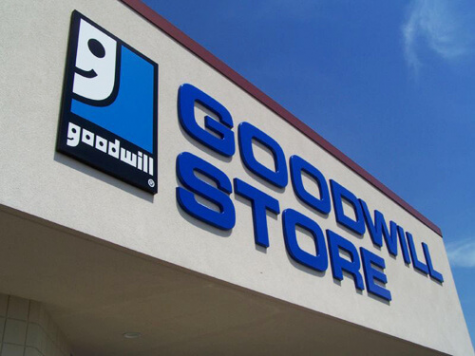

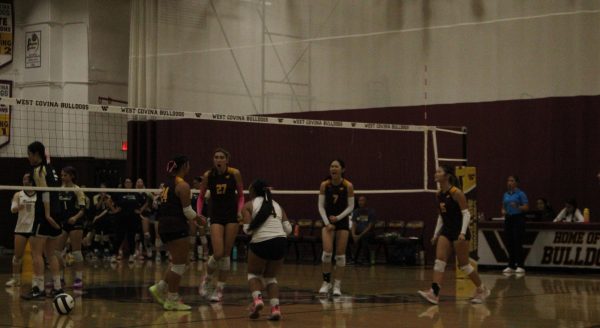
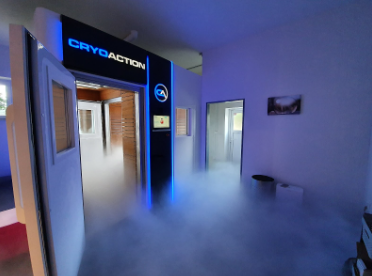

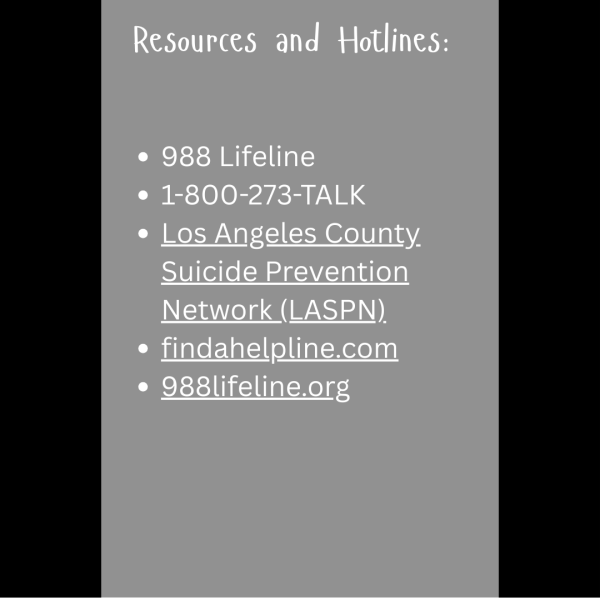
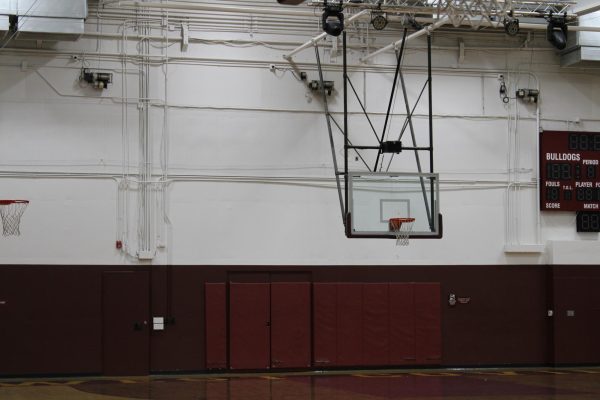
Michelle • Mar 9, 2021 at 8:55 pm
I lived near the BKK dump site in 1974-76 as a child. In 1980 I lost my leg to rare bone cancer. I believe my cancer was from living so close to this toxic site. I strongly encourage people of West Covina to protect their people and not allow any building on this site and definitely not to start messing with the soil or water table on this land. This is a deadly superfund site that should never be disturbed in any way.
Frederick • Sep 7, 2020 at 3:28 pm
Development is always the best route. The only time it could be wrong, would be is when individual rights are violated. An example of that would be the use of Eminent Domain. Which is when the government enables the confiscation of private property real estate.
BKK has been a hot issue in West Covina, since the beginning of the Environmental movement, which started with Nixon in 1970. BKK provided a great service to West Covina, enabling business, and residents a nearby place for garbage refuse. But it has not been seen that way. Any problems with the land can or has been solved with today’s technology. So if there are problems they can be fixed. A hotel development, a golf course, that is a great idea. I used to have to go out to a course called “Twin Lakes” in El Monte, to play as a kid and teenager. So a course for young people that could be great. But it’s up to the purchaser of the land. Why did the city buy the land, to fix it? Government officials are going to fix a problem? Government should protect individual rights and private property. If the land was leeching out to other properties, then that should have been fixed. By the suing of BKK, which if i remember was done. The city, or government agency should never buy land in America.
Allan • Aug 9, 2020 at 11:33 am
I lived in West Covina from 1960 to 1980. I road bicycles with all my friends in that area and I can still taste the smell of all that waste. Without removing all that contaminated soil, I believe any type of development would be a disaster. I still stay in touch with some of my original neighbors in the Greenville Gardens neighborhood just off Azusa Ave and Merced Ave just down the hill from BKK. There are actually original owners from 1961-62 almost 60 years still leaving there since the houses were first built. I also know friends who lived near BKK and were involved with the lawsuits. They literally had to sell there houses and move away because of the smell and physical problems including headaches and nausea. The residents in West Covina really need to get involved in something as important as this.